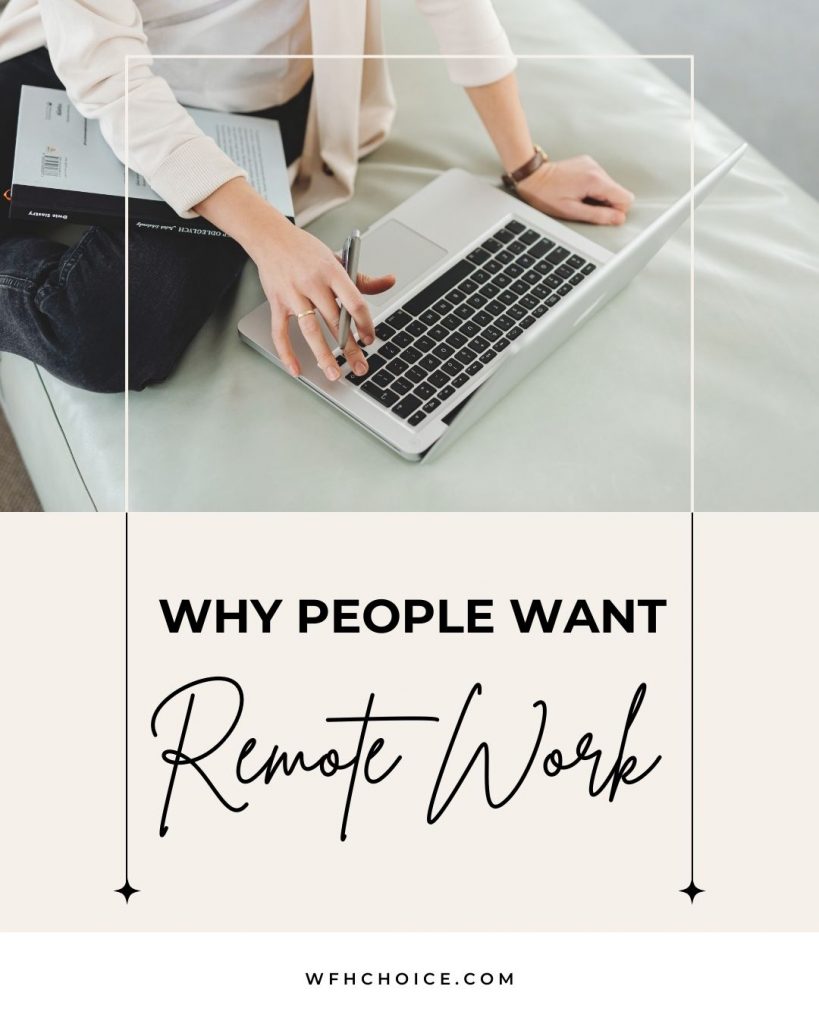
Why People Want Remote Work
Some of the content on our site may contain affiliate links. Clicking may earn a small commission, at no extra cost to you. Thank you for being supportive! Please see our Disclaimer for further information.
Remote work has become one of the most talked-about shifts in how we approach jobs today. What was once considered a perk or something only freelancers enjoyed has now become a mainstream option, and many people are actively looking for roles that offer it. But what’s behind this demand? Here are some of the main reasons people want remote work.
Better Work-Life Balance
One of the biggest appeals of remote work is balance. Without a daily commute, people gain back time that can be spent with family, on hobbies, or even just resting. It gives more control over how the day is structured, which can help reduce stress and create a healthier lifestyle.
Flexibility
Remote jobs often come with more flexibility around working hours. Parents can fit work around school runs, and those with caring responsibilities can adjust their day without the rigid 9-to-5 office schedule. Even small things like being able to put a load of washing on during lunch make life more manageable.
Cost Savings
Travelling to and from the office can be expensive, especially with rising transport costs and fuel prices. Working from home cuts those costs completely. It also saves money on things like takeaway lunches, work clothes, and coffees grabbed on the go.

Productivity and Focus
Many people find they get more done at home without the distractions of an office. Fewer interruptions, no background chatter, and the ability to set up a personal workspace can all help increase productivity. For some, working in their own environment means they can focus better and produce higher-quality work.
Wider Job Opportunities
Remote work opens the door to jobs outside of a person’s immediate location. Instead of being limited to what’s available within commuting distance, people can apply for roles across the country—or even globally. This can mean better career prospects, higher pay, or the chance to work with companies they admire.
Health and Wellbeing
Not everyone thrives in a busy office. For people with anxiety, chronic illnesses, or disabilities, remote work can be a much more suitable option. Being able to work in a comfortable environment can help people maintain their health while still progressing in their careers.
COVID and Changing Perspectives
The COVID-19 pandemic played a major role in how people view work. Many jobs that were once thought to require an office suddenly shifted to remote setups. This showed both employers and employees that working from home is possible and often just as effective. For some, COVID highlighted the importance of safety, reduced exposure to illness, and the value of being able to control their working environment.
Autonomy
Remote work encourages more independence. People are trusted to get on with their tasks without constant supervision, which can be motivating and empowering. It allows individuals to develop self-discipline and manage their workload in ways that suit them best.
Environmental Impact
For those who are eco-conscious, cutting out the commute means lowering their carbon footprint. Fewer cars on the road and less reliance on public transport can make a difference, and many workers value the chance to contribute positively in this way.
To Summarise
The demand for remote work is about more than just convenience—it’s about creating a healthier, more sustainable, and flexible way of working. COVID accelerated this shift and showed just how viable it can be. While not every role can be done from home, the appetite for it shows that many people want jobs that fit around their lives, rather than the other way around.
Pin Me!
